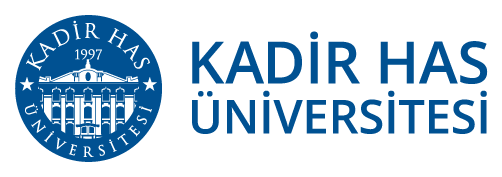Kadir Has University Sustainability Policy
It becomes increasingly clear that the problems we face in the 21st century at the local and global level, ranging from access to quality education to the fight against the climate crisis, from gender equality to the protection of natural resources, are among the most comprehensive and challenging problems encountered in the history of the world. It is possible to evaluate these problems under the concept of "sustainability," as can be seen in the United Nations Sustainable Development Goals that were established to identify the issues correctly and produce solutions. In this respect, universities with a leading role in education, research, and public service have essential responsibilities in sustainability as well.
In this context, Kadir Has University aims:
- To set goals for an institutional transformation that will ensure that sustainability is prioritized and internalized by all university members and reshaping the corporate culture based on sustainability,
- To include, beginning with the Core Programme, sustainability in the academic curriculum for all students and developing social responsibility and research projects shaped by the creativity of students,
- To produce high-quality research outputs in line with the goals of establishing a sustainable system and lifestyle and transforming it into a sustainable planet,
- To share the information produced at the University and qualified educational resources with the relevant segments of society through tools such as public lectures and colloquia,
- To preserve the cultural heritage within the University, especially the Historical Tekel Cibali Facility building and Rezan Has Museum, and conducting scientific studies in this field,
- To establish an inclusive, participatory, and egalitarian campus climate where all forms of discrimination, especially gender inequality, are eliminated,
- In this context, to establish an education and research ecosystem with an accessible campus free of all obstacles,
- To inform university members about their funds for social entrepreneurship and innovation projects based on sustainability,
- To reduce the University's carbon footprint and spending on paper, plastic, metal, and glass, and maximizing recycling efforts,
- To carry out studies to increase energy efficiency by considering the air conditioning and energy consumption conditions of the University,
- To ensure that the University will be prepared for pandemics, natural disasters, and crises, all its members should have disaster awareness,
- To develop national and international collaborations to support studies in the field of sustainability and to announce and encourage these studies by creating a stakeholder map.
Kadir Has University Public Service Policy
As one of the main fields of activity of universities, public service brings together the knowledge produced in the University with society. For Kadir Has University, service to society is connected to education and research processes; it feeds education and research, and it lives on them. The University's public service efforts are an integral part of its education and research vision, which is to become a university of international standards.
- Making educational activities accessible to non-university students, especially high school and vocational high school students, through open courses, academies, summer/winter schools, and lifelong learning events,
- Monitoring the demands, expectations, and preferences of both university members and stakeholders (public institutions, non-governmental organizations, private companies) regarding the University, developing necessary action plans in this direction, and informing all stakeholders at regular intervals,
- Bringing open science and open access practices and high-impact research outputs produced within the University to the public,
- Developing and implementing projects for local development, starting from the Cibali district, which is the location of the University,
- Beginning with the Rezan Has Museum, organizing public events and exhibitions on culture, art, archeology, and history,
- Providing economically disadvantaged students with the opportunity of quality education through the White Doves Scholarship Program,
- Sharing the information produced with society by increasing online visibility, accessibility, and distance education opportunities.
